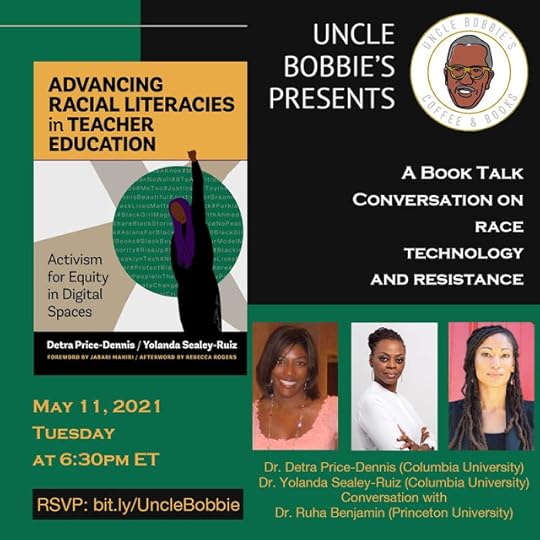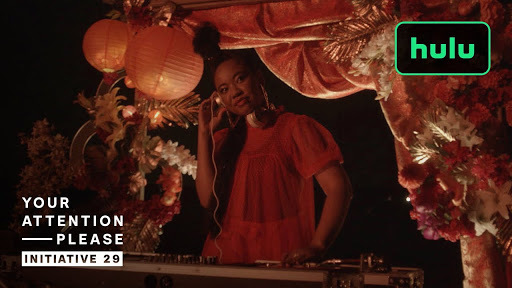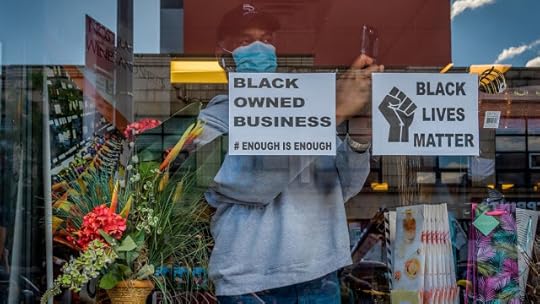Mark Anthony Neal's Blog, page 214
June 1, 2021
The Tight Rope Pod: Dr. Maulana Karenga - The Founder of Kwanza on the Legacy of Malcolm X

'On this episode of The Tight Rope, Professor and activist Dr. Maulana Karenga joins the co-hosts Tricia Rose and Cornel West, to discuss his relationship with Malcolm X, his beliefs about what is necessary to develop a true sense of Black identity, and Kawaida-- his interpretation of ancient Egyptian ethical thought as a living tradition and a useful philosophical option for critical reflection on the urgent issues of our time.'
Debbie Allen I One Million Truths

'Debbie AllenActor, Dancer, Choreographer, Director, Producer. One Million Truths Participant One Million Truths is a real-time testament to the scale of endemic bias and racism built into the fabric of American life built on the power of widespread personal testimonies from Black Americans to effect change.' -- TIME
Uncle Bobbie's Presents: "Advancing Racial Literacies in Teacher Education"

'Uncle Bobbie's welcomes Detra Price Dennis, and Yolanda Sealey-Ruiz for an exciting discussion on their book, Advancing Racial Literacies in Teacher Education: Activism for Equity in Digital Spaces. They are joined in conversation by Dr. Ruha Benjamin.'
Julie Mehretu: Politicized Landscapes | Art21 "Extended Play"

'Shown working on two site-specific paintings for the San Francisco Museum of Modern Art (SFMOMA), Julie Mehretu recontextualizes the history of American landscape painting by merging its sublime imagery with the harsh realities not depicted. "What does it mean to paint a landscape and be an artist in this political moment?" she asks from the decommissioned Harlem church used as her studio for the project.' -- Art21
May 31, 2021
Closing the Digital Divide Requires Everyone to Come to the Table by Donna Rattley Washington

Closing the Digital Divide Requires Everyone to Come to the Table
by Donna Rattley Washington | @DRWashington11 | special to NewBlackMan (in Exile)
It took a public health crisis to reveal, more than anything, the stark reality for the millions of digitally disconnected families in our nation. Since the beginning of the coronavirus pandemic, households have relied on quality internet access to work, order groceries, see a doctor, and communicate with extended family, colleagues, and friends. And for our nation’s students, reliable home internet access was the difference between students who didn’t miss a beat and those left to use cell phones, sit in parking lots, or worse, do nothing at all.
While much has been written and said about the absence of precise information on where we lack broadband infrastructure in this country, we know that the digital divide is the widest in our low-income communities.
One in three low-income families does not have broadband internet at home, and it jumps to four in ten for families earning under $25,000. This truth contrasts strikingly with higher-income households, where less than one in ten families earning $150,000 or more lack home internet access.
We cannot continue to ignore the inequities in plain view. Instead, we must use this public health crisis and our shared awareness to create a lasting solution to this huge opportunity chasm. A comprehensive plan with shared costs across the cable and telecommunications industries, the government, and families, is the solution we need.
The good news is that there is already a model for it.
Since 2011, the largest internet service provider in the country, Comcast, has offered $10 internet service for low-income families. Comcast initially targeted low-income families with a K-12 student in their household, but expanded eligibility twelve times over the years. In 2019, Comcast expanded access to the $10 tier of service to all eligible low-income families that they serve. The rest of the industry followed suit. At the beginning of the pandemic, cable companies covering at least 80% of serviceable addresses voluntarily agreed to offer a $10 and $15 tier of service to low-income Americans and signed on to universal principles governing this service offering.
This model can work for all of us.
It works for the US taxpayer. The US taxpayer does not have to subsidize the industry at a rate of $50 per household when the government can take advantage of current marketplace rates and pay the industry $10 to $15per household for those with the lowest incomes.
For low-income families that don’t qualify for the full subsidy, the government should pay a portion and the family can also pay a portion. We can utilize the same federal eligibility, verification, and reimbursement systems used for the Emergency Broadband Benefit Program.
It works for families. Families will get and stay connected to the internet and not be forced to stop and start service month after month as they struggle to afford even the $10 rate. These customers would be guaranteed a robust tier of internet service rather than having to take their chances with what the market may provide that month.
It works for industry. As Comcast experienced, the industry will add millions of new customers, and reap the increased shareholder value from higher customer counts. Comcast estimates that 80% of its Internet Essentials customers were new internet customers. Because the federal government will pick up the cost for this discounted tier of service for the lowest-income households, and subsidize the cost for others, the industry will save millions of dollars in bad debt. Further, the industry will save millions in operational costs generated by customers, especially customers with low incomes, who turn their service on and off month after month, even at the $10 rate.
The industry can afford this. Unlike video service, where the incremental cost of every new customer can generate hefty new programming costs, where there is existing infrastructure and new construction is not required, in most areas of the country the cost for a new internet customer is negligible.
Now, all we need is for all these players to come to the table to make it happen. With this comprehensive and sustainable shared-cost solution, internet equity is in sight.
+++
Donna Rattley Washington is a former Regional Vice President for Comcast, cable system General Manager, telecommunications law partner, and founder of the Student Internet Equity Coalition, which is advocating for a lasting solution to the digital divide.
@font-face {font-family:Helvetica; panose-1:0 0 0 0 0 0 0 0 0 0; mso-font-charset:0; mso-generic-font-family:auto; mso-font-pitch:variable; mso-font-signature:-536870145 1342208091 0 0 415 0;}@font-face {font-family:"Cambria Math"; panose-1:2 4 5 3 5 4 6 3 2 4; mso-font-charset:0; mso-generic-font-family:roman; mso-font-pitch:variable; mso-font-signature:3 0 0 0 1 0;}@font-face {font-family:Calibri; panose-1:2 15 5 2 2 2 4 3 2 4; mso-font-charset:0; mso-generic-font-family:swiss; mso-font-pitch:variable; mso-font-signature:-536859905 -1073732485 9 0 511 0;}p.MsoNormal, li.MsoNormal, div.MsoNormal {mso-style-unhide:no; mso-style-qformat:yes; mso-style-parent:""; margin:0in; mso-pagination:widow-orphan; font-size:12.0pt; font-family:"Calibri",sans-serif; mso-ascii-font-family:Calibri; mso-ascii-theme-font:minor-latin; mso-fareast-font-family:Calibri; mso-fareast-theme-font:minor-latin; mso-hansi-font-family:Calibri; mso-hansi-theme-font:minor-latin; mso-bidi-font-family:"Times New Roman"; mso-bidi-theme-font:minor-bidi;}.MsoChpDefault {mso-style-type:export-only; mso-default-props:yes; font-family:"Calibri",sans-serif; mso-ascii-font-family:Calibri; mso-ascii-theme-font:minor-latin; mso-fareast-font-family:Calibri; mso-fareast-theme-font:minor-latin; mso-hansi-font-family:Calibri; mso-hansi-theme-font:minor-latin; mso-bidi-font-family:"Times New Roman"; mso-bidi-theme-font:minor-bidi;}div.WordSection1 {page:WordSection1;}
May 30, 2021
Quiet Storm: How 1970s R&B Changed Late-night Radio

'Late one evening in the summer of 1976, a Howard University student named Melvin Lindsey was tapped to fill in as a host at WHUR, the university-owned Black radio station. He chose a lineup of his favorite R&B ballads to soundtrack Washington, DC, that evening. The show was an accidental success. Shortly thereafter he was hired, and his show had a name: The Quiet Storm. Quiet Storm radio shows have since become a staple of Black communities across the United States. In the video above Estelle Caswell, along with ethnomusicologist Fredara Hadley, break down exactly what makes Quiet Storm such a beloved Black radio tradition. Also featured in the episode are radio hosts, Angela Stribling, Al Wood, and John Monds.' -- Vox
Jazz Singer Nnenna Freelon Works Through Grief With New Album And Podcast

'Time Traveler, Nnenna Freelon's first new album in more than a decade, is a passionate expression of love enduring as she grieves the loss of her husband and other family members.' -- Weekend Edition Saturday
The Quarantine Tapes 192: Kevin Young

“History is meant to combat silence, but I think being a poet, you sometimes need to work with silence. You sometimes need to represent it.”
'On episode 192 of The Quarantine Tapes, Paul Holdengräber is joined by Kevin Young. Kevin is a poet and the new director of the Smithsonian National Museum of African American History and Culture. As the museum prepares to reopen this spring and approaches its fifth anniversary later this year, Kevin talks about what the museum means to him, as a museum director and as a poet.'
Black Entrepreneurship Booms During Pandemic
'Weekend Edition Sunday's Lulu Garcia-Navarro speaks with Andre Perry, senior fellow at the Brookings Institution, about a nationwide pandemic-era increase in Black-owned small businesses.'
Your Attention Please: Initiative 29 - Dr. Tao Leigh Goffe

'Journey through time with professor and DJ Tao Leigh Goffe as she uncovers her story at the intersection of Black and Chinese culture in this episode of Hulu's #Initiative29.'
Mark Anthony Neal's Blog
- Mark Anthony Neal's profile
- 30 followers




